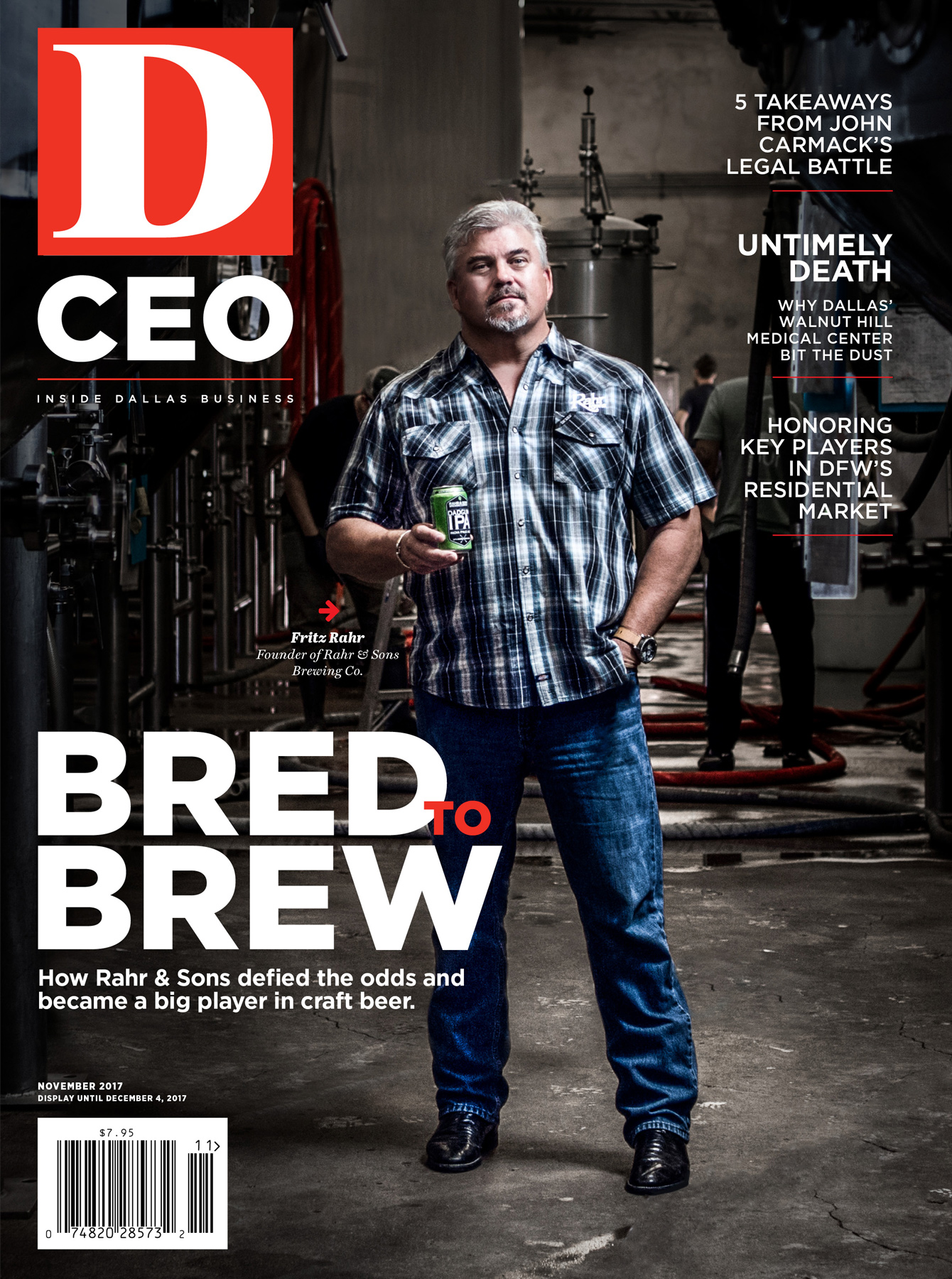Not too long ago, Amy Czuchlewski, Bottle Rocket’s vice president of engineering, tried to coax a strategic hire into joining her 70-person development team. The hire had gone through a tough vetting process, had a solid track record, and is someone Czuchlewski believed would be the perfect fit. But the candidate remained on the fence. So Czuchlewski invited him to tour Bottle Rocket’s Addison office. But it wasn’t a normal tour. Czuchlewski specifically scheduled it at the same time that her team’s whiskey connoisseurs met for their Friday tasting in the office. “It turned out this guy was a whiskey aficionado,” she laughs. Sure enough, the next day Czuchlewski received a call from the prospective hire. “He called me and said, ‘Yeah OK, you guys got me,’” she remembers.
The “run-in” with the whiskey club was a minor move with a major payoff. It helped Czuchlewski show off Bottle Rocket’s quirky culture. And it was ultimately the deciding factor for a top recruit. As more corporations move into Dallas-Fort Worth, competition for top tech talent continues to intensify. “The larger corporate entities that are relocating are moving operations from out of state,” says Nicole Sims, Dallas-Fort Worth regional manager of Robert Half Technology, a technology staffing firm. “A small portion of their existing base may relocate, but a lot of times they don’t. So they’re pulling teams from the local market. … Good candidates in this market have options.”
The growing number of opportunities for local tech employees keeps competition heated. For CIOs and leading technology executives, hiring has become a critical part of their job as they beef up teams to handle the growing technology demands of their businesses. DFW CIOs find that their biggest barriers in hiring tech staff are not finding enough qualified candidates, not being able to meet salary demands, and not being seen as an employer of choice, according to a survey developed by Robert Half and conducted by an independent research firm. The survey, conducted earlier this year, included 2,500 CIOs—100 of which were in DFW—across 25 metropolitan areas in the U.S. NTT Data, AT&T, CBRE, and Bottle Rocket say some of these barriers have eased over recent years, while others remain challenges. “It’s getting harder and harder to attract great talent because of the demand,” says Chandra Dhandapani, CIO of CBRE. “The market is highly competitive.”
Competing for the Best
Dhandapani says she spends about 20 percent of her time on recruitment each month. And while finding the right person for the job can be difficult, for Dhandapani, the amount of attention DFW has received in recent years has actually helped her bring in qualified people from outside the market. “Five years ago … that was much harder,” she says. Czuchlewski has also seen the talent pool change for the better. “It used to be, when I first started, it was difficult to find mobile talent,” she says referring to several years ago. “But that’s really evolved. Now they’re everywhere.” Barry Shurkey, NTT Data Services CIO, says he has had little trouble finding qualified talent, and often enough, he doesn’t have to look far. “Ninety percent of the people are within Dallas,” he says, adding that a search firm helps him identify people who recently relocated along with local talent. Half the battle in finding top talent is attracting the first few heavy hitters, says Dhandapani. After that, it gets easier, as good people often refer other good people. In fact, about 90 percent of Dhandapani’s latest 100 hires came from referrals.
But companies have to make an attractive offer to land top choices—and that includes everything from salary to working environment and perks. For NTT Data, offering a competitive salary is key to attracting top talent. “You have to make a business decision around the top candidates,” Shurkey says. “There are times you make investments on top quality people, and they pay for themselves.” While salary is important, Dhandapani says it’s only one element in an “attractive” offer. AT&T CIO of Network and Shared Services, Sorabh Saxena, agrees. “The attraction is not just the salary, but the challenges they get to work with, the benefits package, the longevity of AT&T, and what we intend to do,” he says. Dhandapani says she isn’t interested in someone who is solely focused on numbers. “We don’t try to outcompete based on salary,” she says. “We are modernizing our infrastructure, and [our employees] get to work with leading tech at a global company. … All of those things come into play, not just salaries.” After all, this is not Silicon Valley, she added. But competing with Silicon Valley is still a reality, says Czuchlewski. “The Valley is our hugest competitor,” she says. “Comparing the Valley salaries to Dallas salaries—there’s no comparison. But when comparing Dallas to Dallas, all we can do is try to be competitive. And we are.”
Put to the Test
To make competitive offers, CIOs and tech leads often have to thoroughly vet candidates without losing them in the process, Sims says. “Tests that take multiple hours—there’s no incentive for candidates to go through that rigor when they have two other offers that don’t require it,” she says. “Keep in mind the other opportunities candidates might have.” CBRE, NTT Data, AT&T, and Bottle Rocket all handle the process differently. Some try to move as quickly and efficiently as possible, while others create more rigorous processes to weed candidates out in skill and willingness to complete the task.
For CBRE and NTT Data, the process is about understanding how technologists think. “It’s about asking the right questions,” Shurkey says. And that means using behavioral interview questions, which require candidates to pull examples from how they may have handled previous situations. That often shows how a candidate might behave in the future and what kind of results to expect, Shurkey says. “The question isn’t, ‘Do you have Java skills?’ The question is, “Tell me how you were able to apply it,’” he says, adding that responses will reveal skillsets quickly. At CBRE, Dhandapani requires candidates to provide samples of their previous work for review. “We can look at the code and see how this person thinks,” she says, adding that it makes the conversation a lot easier. Bottle Rocket also cares about candidates’ problem-solving skills, but Czuchlewski says she’d much rather take her time to ensure due diligence and weed out candidates who aren’t committed. Bottle Rocket candidates usually complete two one-hour interviews, a live white-board coding test, and a 30-minute behavioral interview in addition to a six- to eight-hour coding test. Meanwhile, AT&T has such unique qualifications for its candidates—in addition to software development skills, they need networking engineering, product, and networking operations knowledge—that it spends more time grooming its employee base than acquiring new talent, Saxena says. “Getting that integrated skillset is a hard one, and that’s why there’s only so much we can rely on externally,” he says. And the company is structured to handle the task, investing $250 million annually in its internal workforce education program called T University.
Telling Their Story
As DFW rises in the ranks as a tech hub, local companies are challenged to connect their missions to tech candidates, battling the Googles, Apples, and Facebooks of the world.
This is a big area of focus for Dhandapani, as the real estate market hasn’t typically been viewed as a tech-driven industry, she says. “When they … want to look for another job they’re not looking for commercial real estate,” she says about tech talent. “So part of it is assuring people of what’s possible and how this industry is evolving.” Dhandapani believes CBRE could be on the cutting edge of the industry, which is still in its early stages of technology adoption. For Czuchlewski, understanding Bottle Rocket is all about understanding its creative culture. For NTT Data and AT&T, it’s about explaining the breadth of their global companies and the opportunities that exist within.
The rush for top tech talent in DFW isn’t expected to end anytime soon, as recently relocated companies continue to staff up, Sims says. “We’re growing rapidly… and I don’t see any indicators that the market is going to shrink,” she says. “And that means higher competition.”






